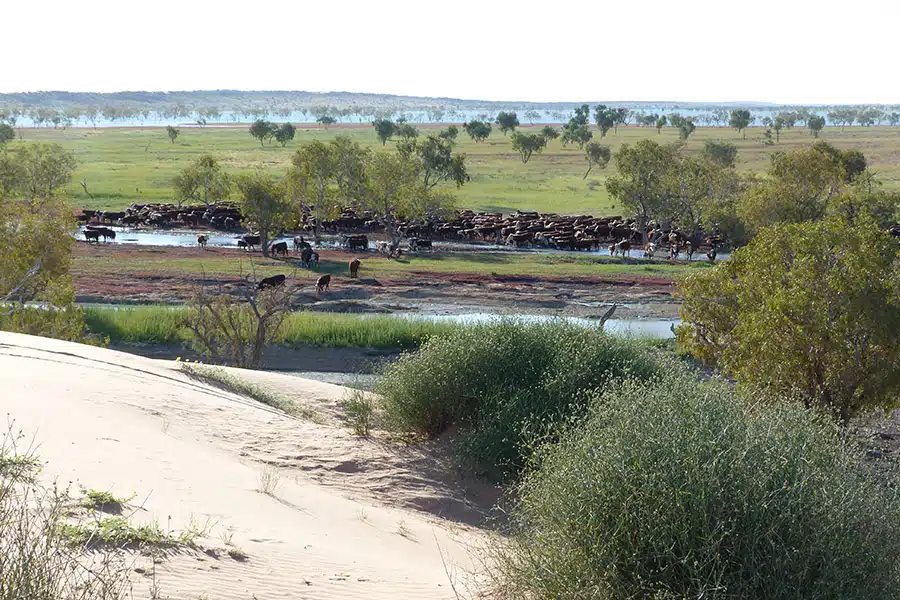Unlocking the Nutritional Power of Grass-Fed Beef
As consumers increasingly demand transparency about the food on their tables, the interest in grass-fed beef is booming. But, what makes this meat so sought after? Is it merely the trend of the moment, or does it have tangible health benefits that make it worth the investment?
What’s on a Cow’s Menu?
Cattle are ruminants, meaning their natural diet consists of a variety of grasses and plants. This fact makes them exceptional converters of plant nutrients into a form easily absorbed by the human body. When cattle feed on a varied, natural diet, the result is grass-fed beef, a nutrient-dense source of protein that’s rich in health-supporting fats, vitamins, and minerals.
Grass-fed Beef: A Nutritional Powerhouse
Grass-fed beef has a healthy fat profile. The meat from grass-fed cattle is leaner overall, but more importantly, it’s rich in omega-3 fatty acids, a type of polyunsaturated fat that’s crucial for heart health.
Grass-fed cows also produce beef with higher levels of conjugated linoleic acid (CLA), another beneficial fat. Research suggests that CLA might aid in weight management and may even have anti-cancer properties.
Grass-fed beef is packed with antioxidants. These include carotenoids, like beta-carotene, from the green grass they eat, which our bodies convert to vitamin A, vital for good vision and a strong immune system. It’s also a source of vitamin E, an antioxidant that helps protect our cells from damage.
Lastly, grass-fed beef is also high in bioavailable minerals like selenium, zinc, and iron. These minerals are essential for various bodily functions, such as maintaining a healthy immune system, healing wounds, and transporting oxygen throughout the body.
Unseen Benefits of Grass-Fed Organic Beef
What you don’t find in grass-fed beef can be just as important as what you do find. OBE Organic cattle are raised on organic pastures, they’re free from exposure to harmful pesticides and genetically modified feed. This means that the meat they produce is devoid of antibiotics, added hormones, and other potentially harmful residues.
“Each species on our planet plays a role in the healthy functioning of natural ecosystems, on which humans depend.” – William H. Schlesinger, Biogeochemist and the Retired President of the Cary Institute of Ecosystem Studies
The Halal Advantage
In addition to the health benefits associated with grass-fed beef, consumers should also consider the religious and ethical standards of the meat they consume. Halal beef, for instance, ensures that the animal was treated humanely and slaughtered according to Islamic laws, providing another layer of consumer confidence in the product’s integrity.
Unlocking the Power of Grass-fed Beef
Choosing grass-fed beef provides a delicious, nutrient-rich meal. It offers a connection to the land, promotes animal welfare and supports sustainable agriculture. Next time you visit your local butcher or supermarket, remember that you have the key to unlocking this power right in your hands.
“As consumers, we have so much power to change the world by just being careful in what we buy” — Emma Watson
Understanding where your food comes from, how it’s raised, and the nutritional benefits it provides allows you to make informed decisions.
And finally, while it’s clear that grass-fed beef organic beef is a nutritional powerhouse, it’s worth noting that all these benefits are dependent on the quality of the pasture and the ethical standards of the farm where the cattle are raised. Not all grass-fed beef is created equal, and it’s essential to select high-quality products from sources you trust.
Bringing It All Together
So, next time you’re planning a dinner menu, consider the humble, grass-fed cow, roaming freely in open pastures. Picture the wide variety of grasses they consume, each adding to the complex nutrient profile of the beef they produce. Remember the benefits – the heart-healthy fats, the rich array of vitamins and minerals, and the peace of mind that comes with consuming a product free from antibiotics, added hormones, and chemical residues.
Connect with OBE Organic on social media to keep learning more about the power of grass-fed beef and other important food topics. Don’t hesitate to contact us if you have any questions. We’re here to help you make informed decisions about the food you eat. It’s a choice that matters – for you, for the animals, and for our planet.
FAQs
Grass-fed beef is leaner, higher in omega-3 fatty acids, conjugated linoleic acid (CLA), antioxidants, and essential minerals compared to grain-fed beef. Its superior nutritional profile contributes to overall health.
Yes, grass-fed beef usually has a more robust, earthy flavour compared to grain-fed beef due to the diverse range of grasses and plants in their diet.
Yes, pasture-raised cattle contribute to a healthier ecosystem by enhancing soil fertility and promoting biodiversity.
Halal beef means the animal has been slaughtered according to Islamic laws, ensuring humane treatment and consumer confidence in the product’s integrity.
No, grass-fed beef from organic pastures is generally free from antibiotics, added hormones, and other potentially harmful residues.
It’s important to consider the quality of the pasture and the ethical standards of the farm. Not all grass-fed beef is created equal, so it’s essential to select high-quality products from sources you trust.
Want to know more about Australia’s best grass-fed organic beef? Contact OBE Organic today.
Learn more here.









